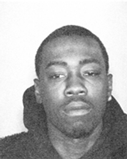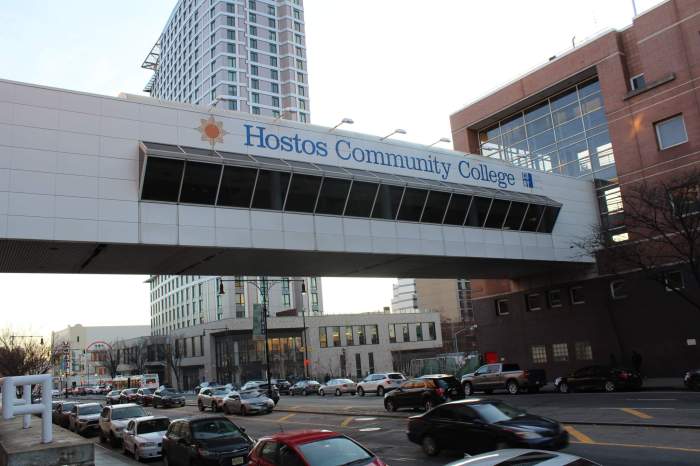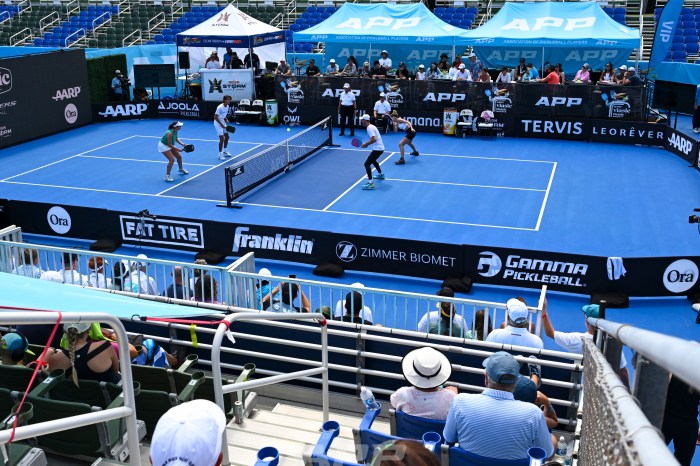“I think justice has been served,” said Thomas C. Ridges, a senior assistant district attorney in the Brooklyn prosecutor’s office, who handled the case. “The investigation is still continuing with regards to the other individual or individuals who were involved in this… Yesterday’s verdict will bring a modicum of closure to Dwan Prince.”
The jury found Pomie, 23, guilty of assault in the first degree and assault in the first degree as a hate crime, the most serious charges he faced. Pomie could get as many as 25 years in prison when sentenced on April 24. Prince, 28, is expected to speak at the sentencing.
Deborah A. Dowling, the trial judge, charged the jury the morning of March 27 and the jury returned its verdict by 6 p.m. that day. Pomie, the sole defendant in the case, was charged with six counts of assault in either the first or second degree with four of those counts being assault as a hate crime.
The jury was presented with two versions of the June 8, 2005 assault that occurred in the Brownsville section of Brooklyn.
Two witnesses to the crime, Omar Bascombe, 28, and Mark Walters, 24, said they saw Pomie and two other men making kicking gestures that night, but a short fence prevented them from seeing what they were kicking. The three men left after a few minutes. Pomie and one of the men returned minutes later to resume the kicking and then they left again.
Walters then found Prince, unconscious, lying face down on the ground. Pomie returned to the scene, but Bascombe prevented him from hitting Prince. Both men testified that Pomie began to leave, but quickly turned and kicked Prince in the head. When they asked why he had attacked Prince, Pomie said, “The nigger is a faggot,” Bascombe testified.
In Pomie’s version of the attack, he was in Brownsville with Kim Young, his girlfriend, to celebrate the first birthday of their daughter when Prince made a “flirtatious comment” to him.
A friend of Pomie’s, Mark Taylor, also known a Big T, observed that exchange and followed Prince out of Pomie’s sight. Taylor returned, Pomie maintained, and reported that he had struck Prince once and the victim had hit his head on the sidewalk as he fell. Young was present when Taylor said this, according to Pomie.
While Pomie’s story was put in evidence by the prosecution through a taped statement he gave to police, he elected to testify and essentially repeated the content of that statement to the jury when questioned by Kleon C. Andreadis, his attorney. Ridges took full advantage of the chance to question Pomie in front of the jury.
Pomie supported Bascombe’s testimony. During cross-examination by Ridges, Pomie said he had seen Bascombe “on a couple of occasions in the neighborhood.”
Ridges asked, “So Omar Bascombe knows what you look like?” Pomie said, “Yes.” Ridges then asked, “So Omar Bascombe wouldn’t be mistaken if he said he saw you somewhere?” Pomie said, “Yes.”
Questioned by Ridges, Pomie said Taylor was over six feet tall and weighed between 230 and 250 pounds while he was under six feet tall and weighed 165 pounds. They look “nothing alike,” Pomie said.
Ridges also elicited testimony from Pomie that Prince and Taylor never spoke to each other nor did Prince touch Taylor. During his summation to the jury, Ridges attacked the defense theory and asked them not to believe that “The man with no motive, Big T, the man with no reason… was the man who perpetrated this crime.”
Pomie testified that he lived in New Jersey and had moved out of an apartment near the crime scene three or four years before the assault, but he could not give his New Jersey address or phone number when Ridges asked for it. When the prosecuter asked why he had given police the Brooklyn address at his arrest if he had not lived there for three or four years, Pomie said, “It’s a habit. It’s the first address I give everybody.”
Pomie testified that he had driven a friend’s car from New Jersey to Harlem to pick up Young. They then drove to Brooklyn and returned to Harlem to spend the night. Pomie said he went back to Brooklyn the next day to visit his stepsister, adding, “I asked her to drive me back to New Jersey ’cause I didn’t have a license.”
Young, whom Pomie called his wife and his fiancé, never testified during the trial despite being the one person, other than Taylor, who could confirm Pomie’s version of Taylor’s comments to him.
Both attorneys made impassioned closing arguments to the jury.
“The evidence shows that Steven’s behavior was consistent with that of an innocent man,” Andreadis said.
Pomie waived his right to have an attorney present when he gave a statement to police, did not oppose being extradited from New Jersey to New York, and testified at trial.
“He told you, as best he could, what happened that night,” Andreadis said. “He wanted you to hear his side of the story.”
Andreadis said the crime scene was poorly lit, he questioned the credibility of Bascombe and Walters, and he suggested that they may have been impaired.
“Perhaps Mark Walters and Omar Bascombe were having more than the one beer they said they were having that night,” Andreadis said.
Prosecutor Ridges told the jury, “You know what happened on June 8, 2005. This defendant and at least one other person made Dwan Prince a victim because of who he is, a gay man.”
Andreadis objected roughly a dozen times during Ridges’ summation and then, with the jury out of the courtroom, he moved for a mistrial. Andreadis said that Ridges had engaged in “burden shifting” during his summation by implicitly telling jury that the defense had to prove its theory or explain the motivations of witnesses.
Dowling denied the motion and said, “Where the people attempted to shift the burden, I corrected that.”
Clarence Patton, executive director of the New York City Gay and Lesbian Anti-Violence Project, a victim’s advocacy group, welcomed the verdict.
“We think that it is a wonderful thing for Dwan and his family to actually get some measure of justice in this,” he said. “It’s not very often that there is someone captured in these hate violence cases… What happened to Dwan was probably the worst hate violence attack suffered by our community last year.”
gaycitynews.com



































